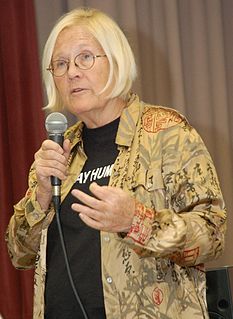A Quote by Henry A. Kissinger
We fought a military war; our opponents fought a political one. We sought physical attrition; our opponents aimed for our psychological exhaustion. In the process we lost sight of one of the cardinal maxims of guerrilla war: the guerrilla wins if he does not lose. The conventional army loses if it does not win. The North Vietnamese used their armed forces the way a bull-fighter uses his cape to keep us lunging in areas of marginal political importance.
Quote Topics
Areas
Armed
Armed Forces
Army
Attrition
Bull
Cape
Cardinal
Conventional
Does
Exhaustion
Fighter
Forces
Fought
Guerrilla
His
Importance
Keep
Lose
Loses
Lost
Marginal
Maxims
Military
North
North Vietnam
Opponents
Our
Physical
Political
Process
Psychological
Sight
Sought
Us
Used
Uses
Vietnamese
War
Way
Win
Wins
Related Quotes
What bin Laden had hoped to achieve in Afghanistan in the post-9/11 period, which was to drag the United States into a protracted guerrilla war like the one he had fought against the Soviets, never happened. Instead, that protracted guerrilla war is now playing out in Iraq, in the heart of the Middle East.
I can push myself and you can push yourself, but competing, we push ourselves a little farther and we bring out our best even if one of us wins and one of us loses. The virtue of competition is that we both get better, not that one does. And that means we have great respect for the opponents, whether we win or whether we lose.
We don't want to impose our solutions by force, we want to create a democratic space. We don't see armed struggle in the classic sense of previous guerrilla wars, that is as the only way and the only all-powerful truth around which everything is organized. In a war, the decisive thing is not the military confrontation but the politics at stake in the confrontation. We didn't go to war to kill or be killed. We went to war in order to be heard.
I am convinced that it is one of the most unjust wars that has ever been fought in the history of the world. Our involvement in the war in Vietnam has torn up the Geneva Accord. It has strengthened the military-industrial complex; it has strengthened the forces of reaction in our nation. It has put us against the self-determination of a vast majority of the Vietnamese people, and put us in the position of protecting a corrupt regime that is stacked against the poor.
Why does the guerrilla fighter fight? We must come to the inevitable conclusion that the guerrilla fighter is a social reformer, that he takes up arms responding to the angry protest of the people against their oppressors, and that he fights in order to change the social system that keeps all his unarmed brothers in ignominy and misery.
As a 29 year veteran of the US Army/Army Reserves, retiring as a Colonel and having served as a U.S. diplomat for 16 years and resigning in 2003 in opposition to the Iraq war, I firmly believe war does not resolve political issues. We must work diligently to force the governments of our nations to use diplomacy, not weapons.
One of the real costs of the war is that our security is actually less than it otherwise would have been - ironic, since enhancing security was one of the reasons for going to war. Our armed forces have been depleted - we have been wearing out equipment and using up munitions faster than we have been replacing them; the armed forces face difficult problems in recruitment -by any objective measures,including those used by the armed forces, quality has deteriorated significantly.





























